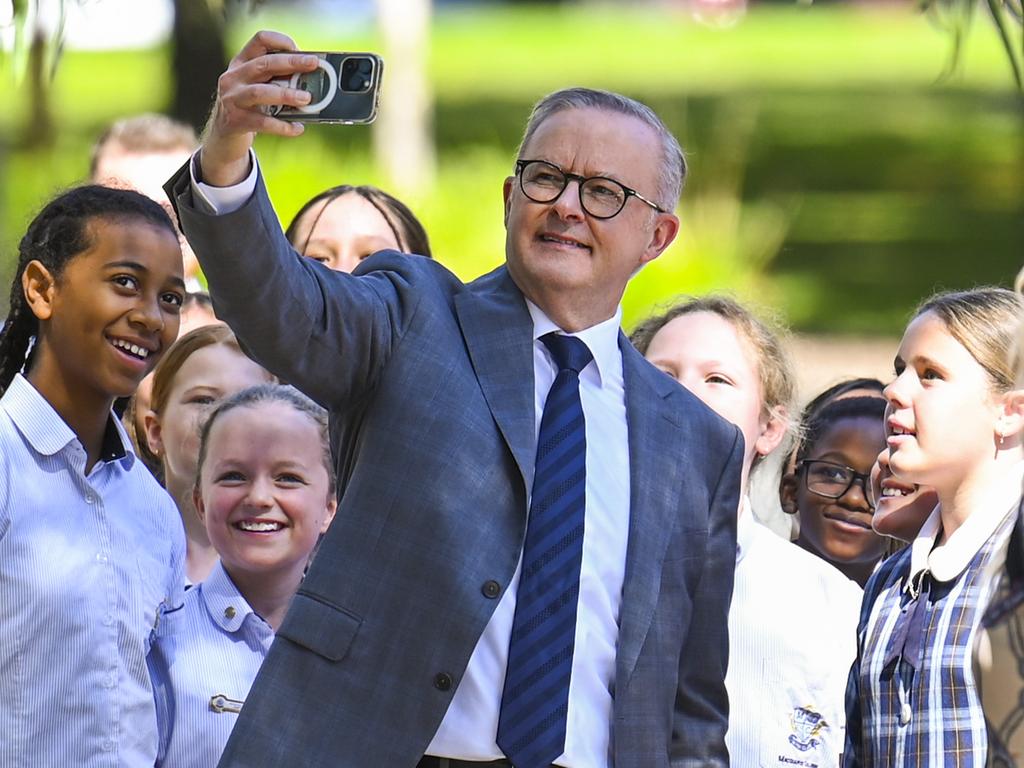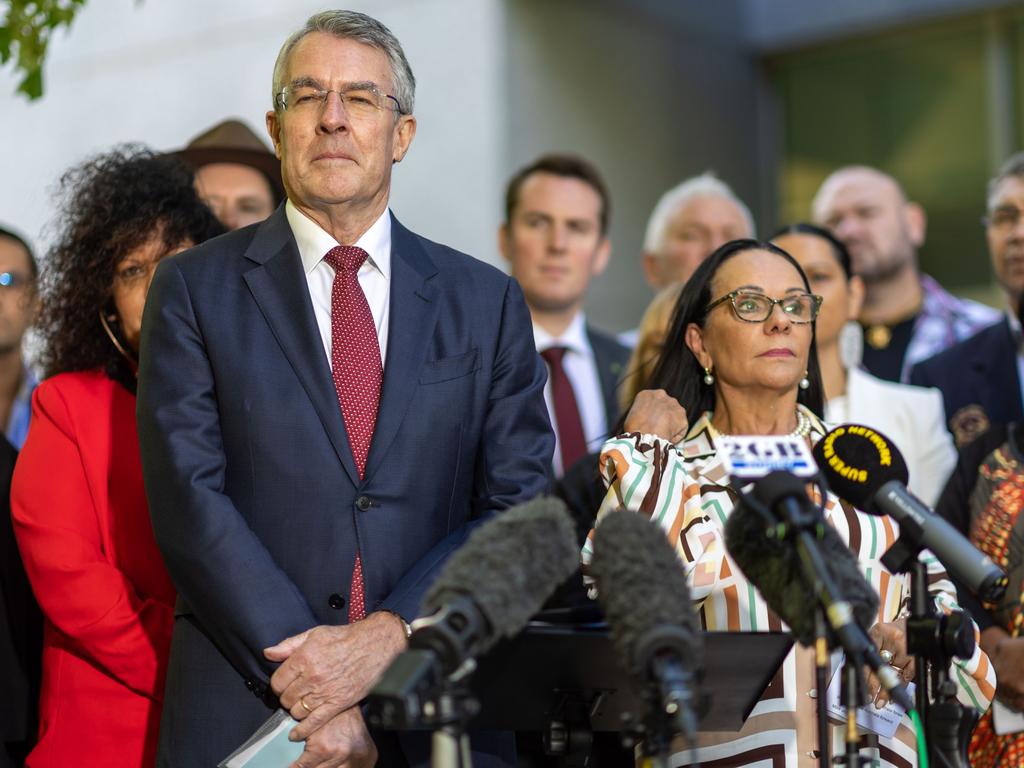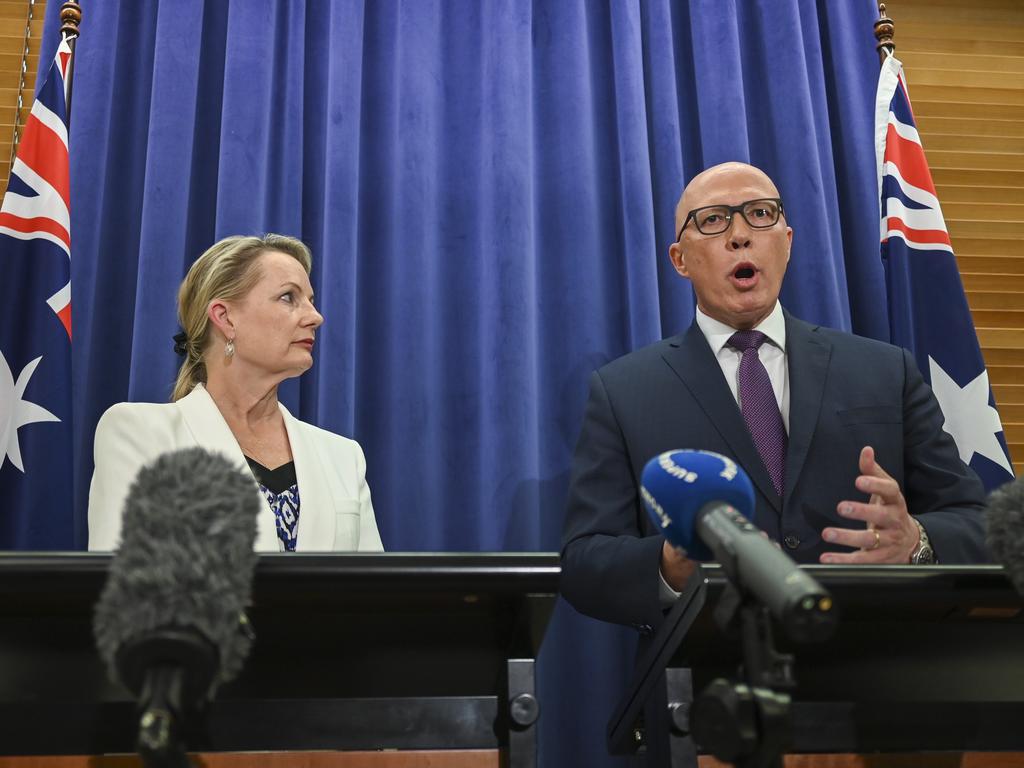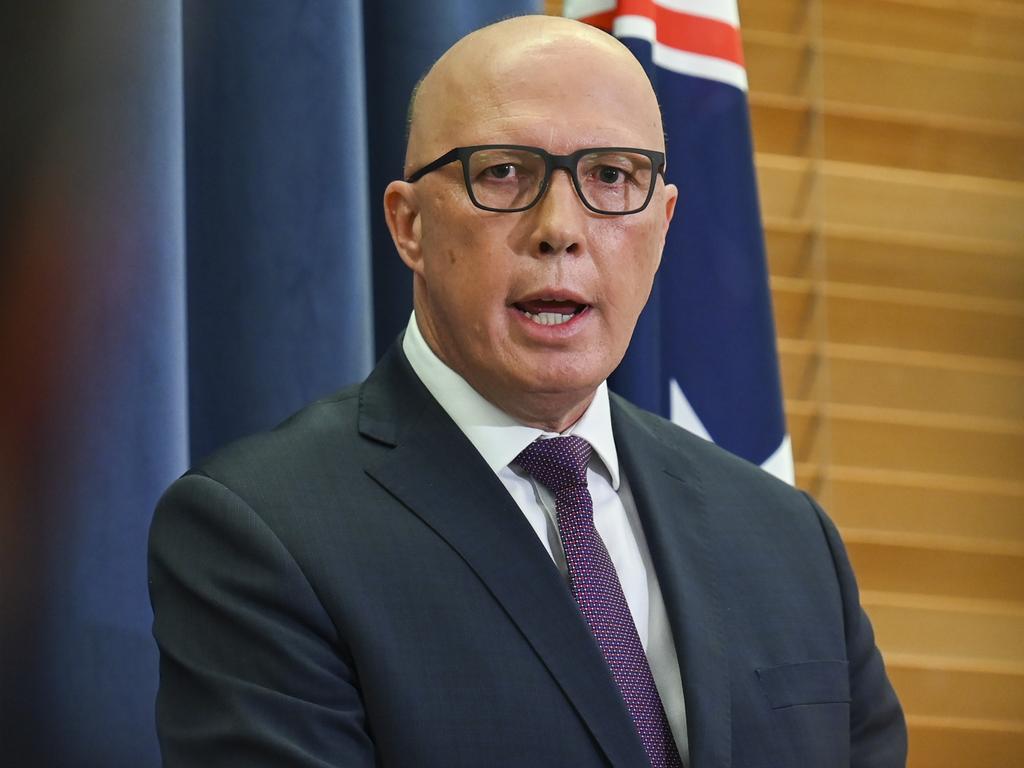Opposition Leader Peter Dutton is not afraid to bet the Liberal farm over Indigenous voice to parliament
Opposition Leader Peter Dutton is now not only gambling his leadership but also the near-term electoral viability of the Coalition on the Indigenous voice to parliament.
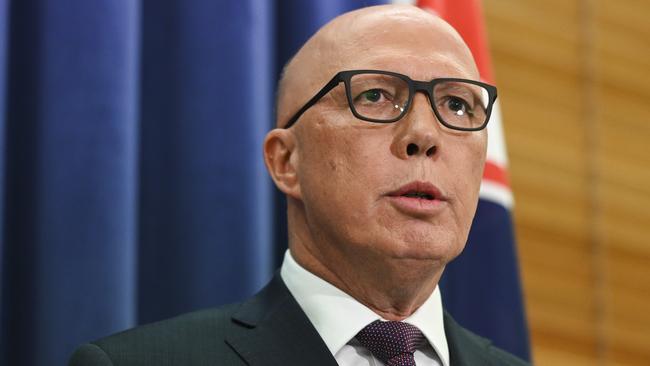
The Aston by-election has unmasked a fundamental challenge for the modern Liberal Party. But in the Indigenous voice to parliament referendum, it may have found the path to a solution.
The jolting defeat in the long-held Liberal seat last weekend sent a political tremor through the party. Federal governments simply don’t take seats from retiring opposition members.
Beyond this historical curiosity, however, is what the loss represents at a basic level and why it has shaken the foundations of not only the Liberal Party’s Victorian division but the entire federal outfit.
Peter Dutton has conceded to a complete failure of intelligence as to why and how it occurred. This is a troubling development. It is one thing to lose a by-election it should have won; it’s another not to have seen a rout coming.
But Aston was just one of two significant and symbolic events of the past week that will underwrite the party’s political response in its pursuit of electoral resurrection and organisational reconstruction.
BEST OF VOICE OPINION: All our commentators weigh in on the Indigenous voice to parliament
On Wednesday, the Liberal leader emerged from a marathon meeting of his partyroom, preceded by meetings with his shadow cabinet, having decided on a course of action over the Indigenous voice to parliament that will shape and acutely sharpen the political debate.
In declaring that he will become an active participant in the No campaign against the government’s proposed model for the voice , Dutton says he is embracing a position consistent with Liberal Party values. He sees this as a first step in reasserting a unifying Liberal proposition.
At its core is the notion of equality of citizenship, an issue that hasn’t been contested before in any polemical sense. This is new political territory.
In Dutton’s view, the voice will become the vehicle for the party’s rehabilitation based on a foundational principle which he argues is under threat from the referendum model on offer by Albanese.
The Liberal Party is now presenting an alternative world view, despite the opaqueness so far of Dutton’s substitute model.
It supports constitutional recognition as a principle. But it rejects a constitutionally enshrined voice to parliament and executive government that could have far-reaching consequences for the operation of government.
Anthony Albanese, Dutton claims, is forcing an issue that will divide the country rather than unite it, while continuing to deny utilitarian outcomes for Indigenous communities.
This week’s Newspoll survey commissioned by The Australian shows support for a voice to parliament at 54 per cent nationally, with a majority of voters in each of five of six states.
Queensland is the only holdout state, with 49 per cent in favour.
This suggests that if a referendum were to be held today, it would narrowly succeed, having satisfied the double majority test. Only two of the eight successful referendums since federation have been carried on such a narrow outcome.
Dutton is confident that the Yes vote so far is a soft vote, and will continue to soften. And there is evidence to support this belief.
Those “strongly” in favour of a constitutionally enshrined voice, according to a Newspoll aggregate of three polls conducted since February, is just 28 per cent. The remainder of the Yes vote is made up of those “partly” in favour.
The No vote consists of 25 per cent strongly against the voice and 13 per cent partly against.
These numbers have only shifted around the margins since the beginning of the year.
Albanese concedes that without bipartisan support, the referendum is at grave risk of failing.
Both leaders have now rolled the dice on a referendum that will have lasting consequences. If it fails, it will set back the case for reconciliation for years. But just who will suffer the political consequences is arguable.
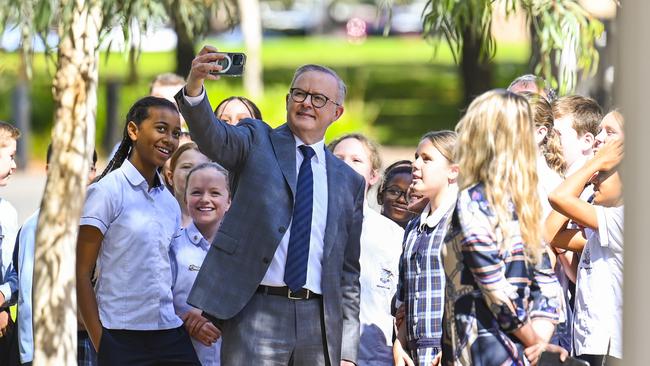
Will Dutton be cast as a “wrecker” by aiding its ruin, or will Albanese be blamed for pushing ahead with a contested model, refusing to reach across the aisle for bipartisan support knowing full well the risk of failure?
This is a high-risk strategy by the Prime Minister, whose appeal is heavily leveraged by moral persuasion. If it succeeds, the risk for the Liberal Party is that it ends up on the wrong side of history, once again plunged into a chaos of introspection with obvious questions for Dutton’s leadership ahead of a likely federal election at the end of 2024.
One thing is clear.
The Aston defeat and the voice are now undeniably linked to the bigger, longer-term questions: what does the Liberal Party stand for, and who does it seek to represent? Having faced its existential moment, the party is being forced to rapidly rediscover itself.
The by-election loss was a failure across multiple levels for the Liberal Party – from the ground campaign operations, through to its political messaging and, more broadly, the party’s deeper philosophical drift. A perfect storm.
Labor’s internal assessment of its victory in Aston is in many respects consistent with the Liberals’ initial post-mortem of its defeat. A mortgage belt seat in the outer suburbs of metropolitan Melbourne, Aston has been held by the Liberal Party since 1990. It was held by Labor for only two terms after its creation in 1984.
While Labor Party officials were hoping for a win, no one predicted the 6.4 per cent swing that delivered it the seat.
Senior Labor insiders believed they had a one-in-three shot at pulling off a win. Up until polling day, they were convinced that their local candidate, Mary Doyle, was still behind in the race- according to Labor’s own tracking, if that is to be believed. But the low voter turnout helped change the game. While the Liberal Party assumed this would work in its favour, with younger voters more likely to stay at home on the couch, Labor engaged a last-minute text message and automated call operation in the seat to urge voters to get out and vote, and to vote Labor.
This, Labor strategists believe, nudged voters into the ballot boxes and into the Labor column.
This may well have accounted for some of the swing but it doesn’t explain all of it.
There is agreement that there were three other primary factors that drove the result.
The Liberal Party’s critique of the Prime Minister and a campaign designed around blaming the government for the cost-of-living crisis failed. Voters rejected the notion that Albanese was in any way to blame.
The Liberal Party failed to grasp the electoral mood on the economy. Trying to blame Albanese for inflation and interest rates simply didn’t work and portrayed the Liberals as out of touch at best, or, worse, deliberately conflating the issue as a political device.
Labor will claim that the second factor was Dutton himself, in terms of both his recognition and popularity. The party’s research showed that voters in Aston were not familiar with Dutton. They didn’t know a lot about him but, once presented with a negative association with the Morrison government, his approval rating fell dramatically.
The most damaging factor was the decision by Victorian head office, the Liberal Party’s administrative committee, to deny a local rank and file preselection and parachute in a candidate from inner city Melbourne. In any other seat, Roshena Campbell would have been a star candidate.
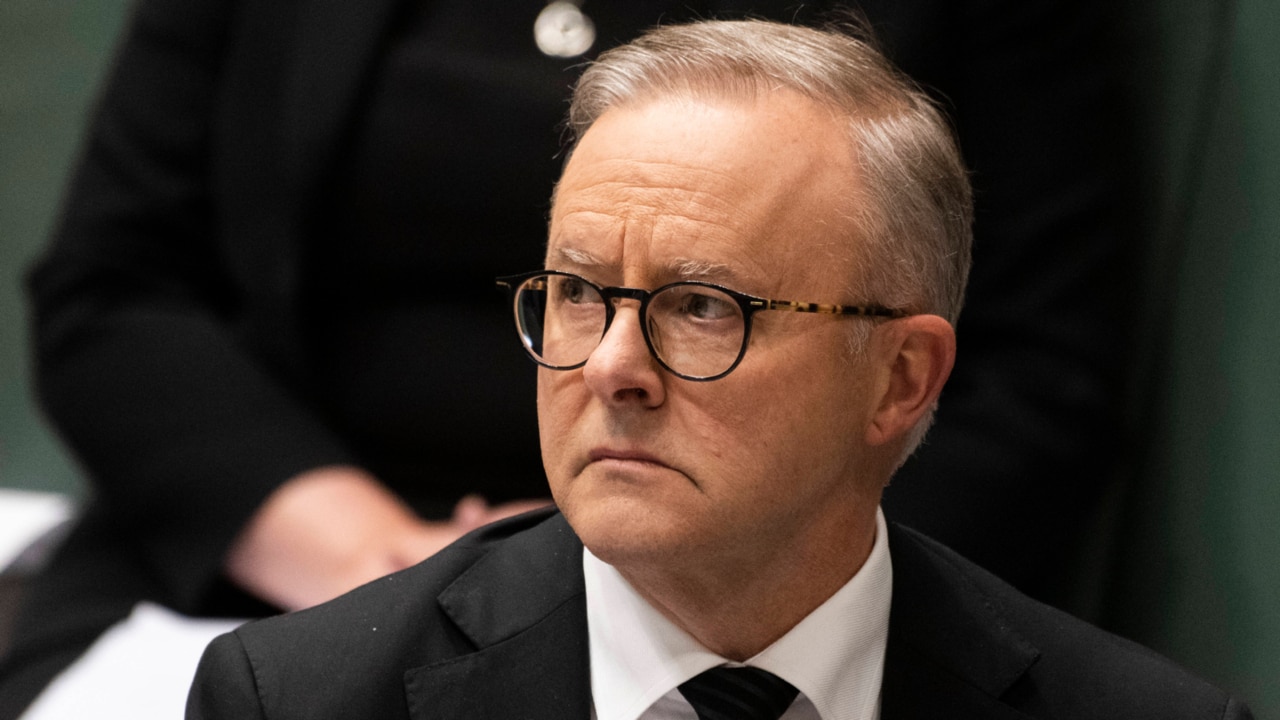
As one Labor insider says of the result: “You are doing one of two things in a by-election; either you are electing a local candidate or you are sending a message to Canberra. Because (Campbell) was not a local, a lot of people were turned off. This may have been the biggest factor,” they said.
She was the right candidate in the wrong seat in a by-election the Liberals should have retained.
This decision speaks to the underlying organisational crisis that is engulfing Liberal Party divisions in almost every state, further compounded in Aston by the dysfunction of the state parliamentary team in its handling of the Moira Deeming transgender controversy. The by-election loss will further corrode confidence in the organisational structures, coming on top of the NSW state election defeat just a week earlier.
Aston presents an urgent message for the Liberal Party: if it doesn’t shift its strategy, it risks having what it is offering being rejected in other outer suburban seats as well. And not just by swinging voters, but by the party’s own support base.
According to one senior Liberal who was on the ground helping with the Aston campaign, the greatest challenge it faced was the glaring absence of the party’s supporter base.
Most of the volunteers the Liberal Party had on the ground were from outside the electorate.
In other words, it was bussing in campaign volunteers and supporters from the inner city to an electorate that would have been foreign to many of them.
This is why many conservative Liberals believe the voice may become a defining policy that could shift the dynamics.
Coalition voters are strongly opposed to the current model. Dutton had no other choice than to steer his partyroom to the outcome on Wednesday.
Newspoll figures show that 55 per cent of Coalition voters were against the question of a constitutionally enshrined voice to parliament. Given this, it may have been a tactical error to have deliberately delayed a partyroom decision on the voice until after the Aston by-election.
The failure of local Liberals to turn up, according to another Liberal MP, is being driven by an apathy and indifference percolating through the party’s base, which is struggling to latch on to issues to fight for.
“All our volunteers were from other electorates coming out of the city,” said one senior Liberal. “It was the same problem they had in the NSW election. In the outer suburban electorates and regions, they simply weren’t turning up.
“In 2013, they turned up in droves – because (Tony) Abbott was fighting for something. They want to see the party fighting for stuff they believe in.”
Conservative Liberal MPs are convinced that the voice provides at least part of the answer. Dutton has sought to achieve two things in both the position the party has now adopted and the language in the political messaging.
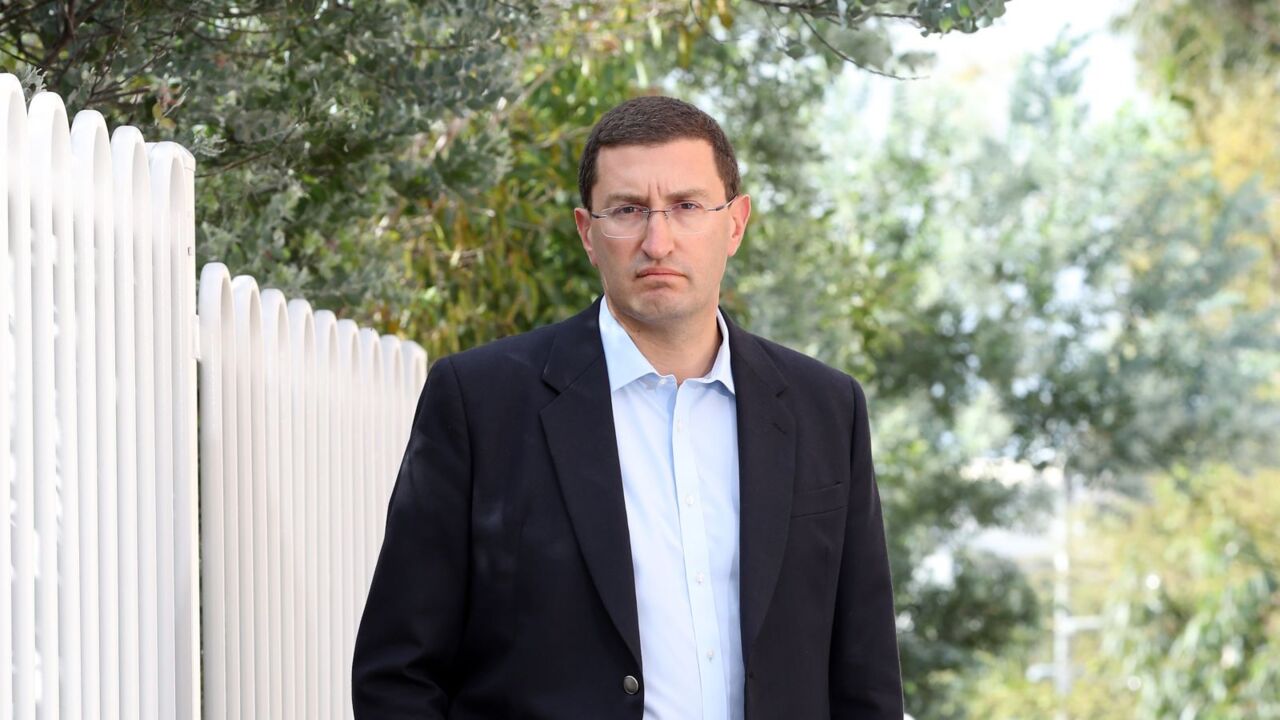
In attacking the model on offer from Albanese, Dutton has sought to characterise it as a centralised and bureaucratic imposition from Canberra. Another arm of executive government.
This is a direct appeal to the deep suspicion of Australians of handing more power to Canberra, which is partly why so many referendums have failed in the past.
Unlike in past debates, such as marriage equality, which saw the party deeply divided, the voice debate provides Dutton with almost unanimous support from his base for a formal opposition to the model as it stands.
The handful of moderate MPs who have broken ranks is far outnumbered by the support for the position Dutton has landed on. And their positions were entirely predictable. Dutton will not be concerned about this.
Dutton’s proposition will resonate with many Coalition supporters, as the polls suggest.
The question of constitutional recognition for Aborigines and Torres Strait Islander peoples was settled long ago. If there were a straightforward question put to Australians, it would undoubtedly receive overwhelming support.
Beyond this, Dutton has found a position around which he believes the Coalition can coalesce and one which may find sympathy more broadly.
One Liberal MP said of the meeting on Wednesday that it crystallised what was an unambiguous question that has until now not been given expression: “When the left violates every principle of equality of citizenship for every Australian, we don’t know how to instinctively argue for it because we’ve never had to, we’ve taken it for granted.
“That’s how the Liberal Party works; for Libs to win, they have to get our supporters out campaigning.
“The position on the voice will get them out. It’s very rare to see an issue that unites them as much as this one.
“This will strengthen us, not weaken us, as it will force us to confront ourselves – which is what you have to do in hard times, especially given Aston.”
Dutton is now not only gambling his leadership but also the near-term electoral viability of the Coalition on this one question, with the party’s decision to oppose the voice setting in stone fundamental political divisions between Labor and the Coalition.
Indigenous leader Noel Pearson’s attack on Dutton in the wake of the decision, describing him as the “undertaker”, is an early indication the debate is likely to become an unedifying spectacle for the next six months.


